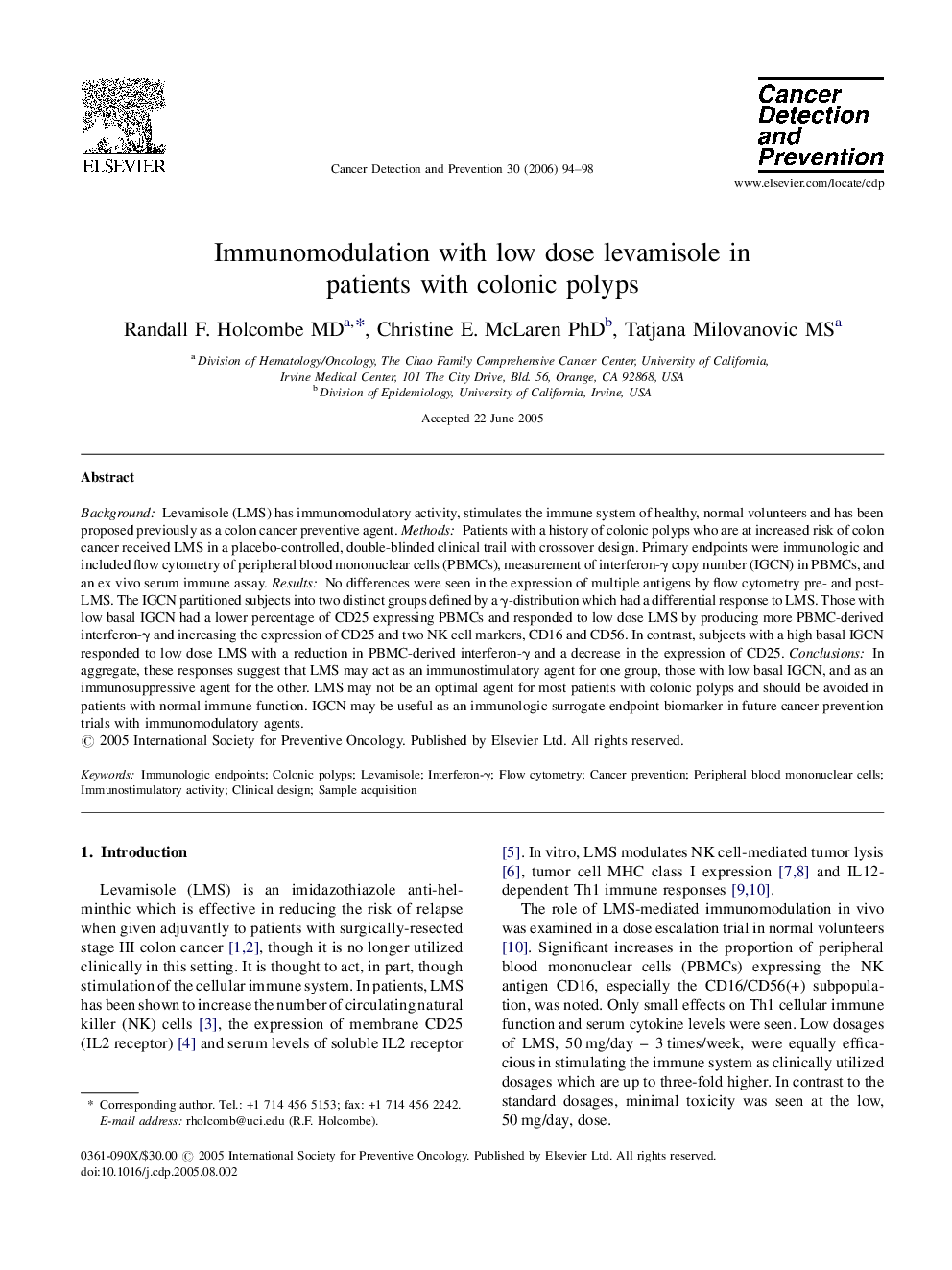| Article ID | Journal | Published Year | Pages | File Type |
|---|---|---|---|---|
| 2108779 | Cancer Detection and Prevention | 2006 | 5 Pages |
Abstract
Background: Levamisole (LMS) has immunomodulatory activity, stimulates the immune system of healthy, normal volunteers and has been proposed previously as a colon cancer preventive agent. Methods: Patients with a history of colonic polyps who are at increased risk of colon cancer received LMS in a placebo-controlled, double-blinded clinical trail with crossover design. Primary endpoints were immunologic and included flow cytometry of peripheral blood mononuclear cells (PBMCs), measurement of interferon-γ copy number (IGCN) in PBMCs, and an ex vivo serum immune assay. Results: No differences were seen in the expression of multiple antigens by flow cytometry pre- and post-LMS. The IGCN partitioned subjects into two distinct groups defined by a γ-distribution which had a differential response to LMS. Those with low basal IGCN had a lower percentage of CD25 expressing PBMCs and responded to low dose LMS by producing more PBMC-derived interferon-γ and increasing the expression of CD25 and two NK cell markers, CD16 and CD56. In contrast, subjects with a high basal IGCN responded to low dose LMS with a reduction in PBMC-derived interferon-γ and a decrease in the expression of CD25. Conclusions: In aggregate, these responses suggest that LMS may act as an immunostimulatory agent for one group, those with low basal IGCN, and as an immunosuppressive agent for the other. LMS may not be an optimal agent for most patients with colonic polyps and should be avoided in patients with normal immune function. IGCN may be useful as an immunologic surrogate endpoint biomarker in future cancer prevention trials with immunomodulatory agents.
Keywords
Related Topics
Life Sciences
Biochemistry, Genetics and Molecular Biology
Cancer Research
Authors
Randall F. MD, Christine E. PhD, Tatjana MS,
